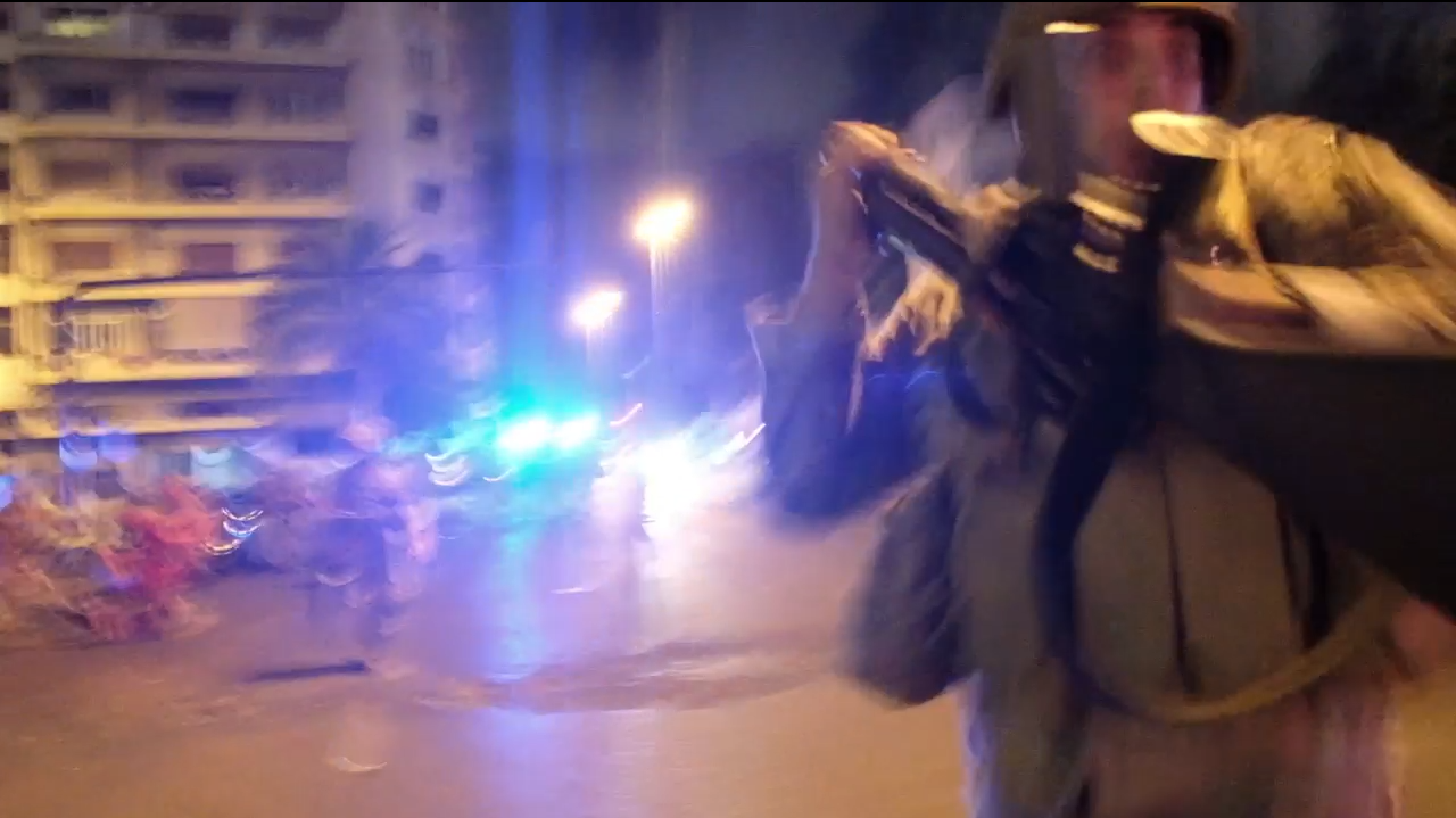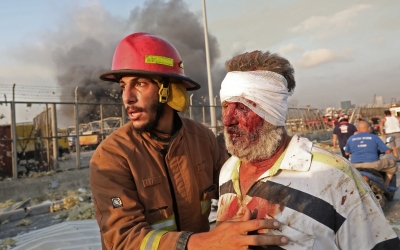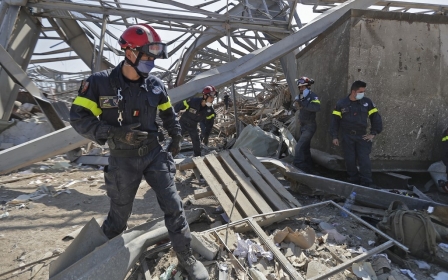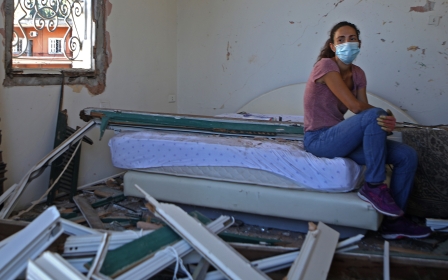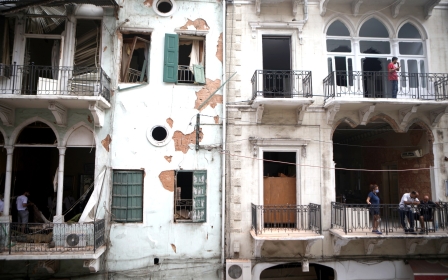Beirut explosion: Lebanese soldiers attack journalists covering blast outrage
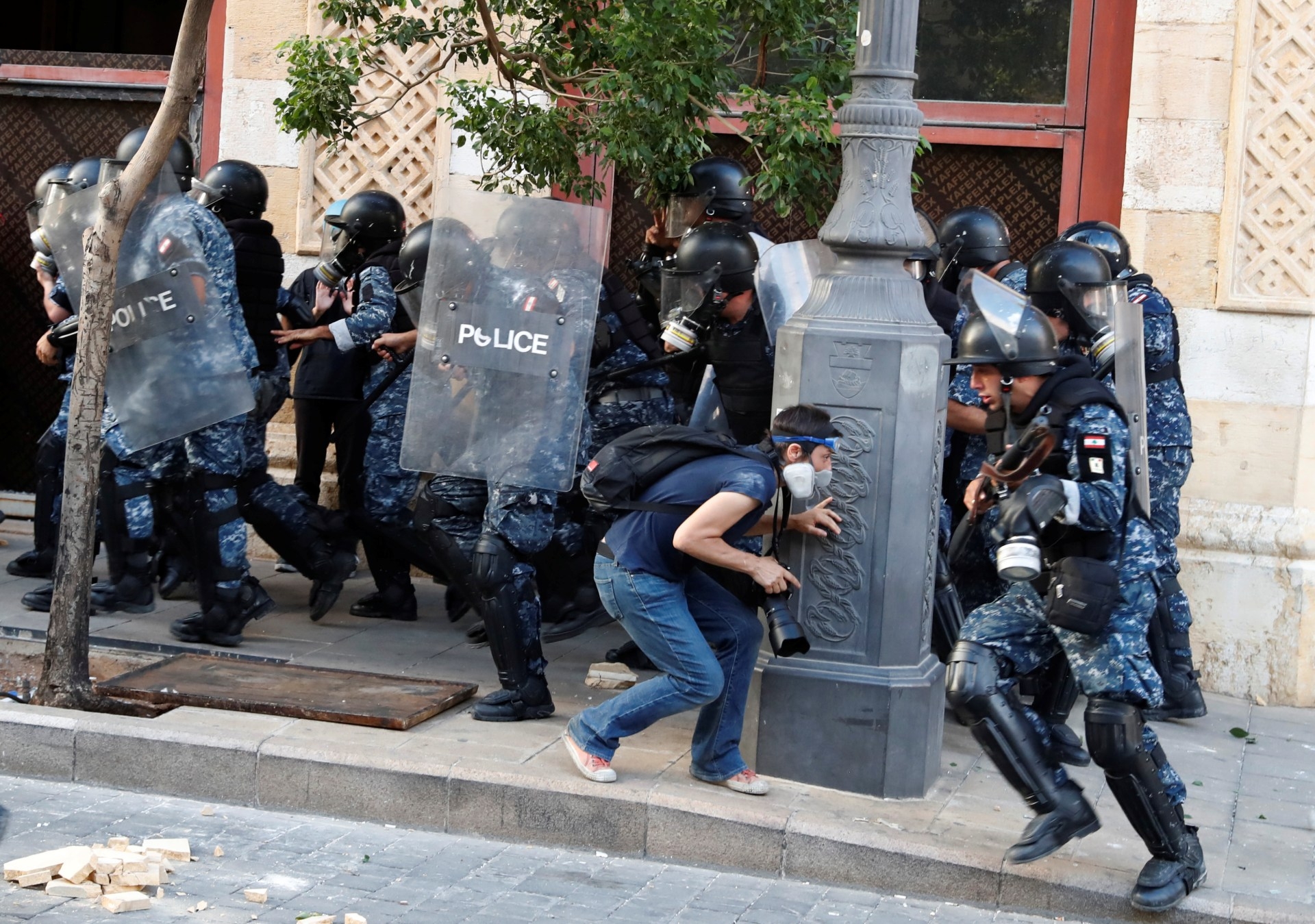
Photojournalist Rita Kabalan was filming a heated standoff between protesters and Lebanese army soldiers at Beirut’s Ring Bridge on Saturday night, as anger over the deadly explosion in the capital’s port boiled over.
Below in Martyrs’ Square was pandemonium, with tear gas smoke rising from the demonstrators’ central rallying point.
“Some threw water bottles at the army … then suddenly they started running towards us,” said Kabalan, whose video of the incident showed soldiers pushing over a protester before kicking him while he was on the floor.
“I started running away but my camera was facing them.”
Her video abruptly comes to an end when a soldier is seen charging at her and hitting her from behind with the butt of his M16 assault rifle, knocking her out cold.
New MEE newsletter: Jerusalem Dispatch
Sign up to get the latest insights and analysis on Israel-Palestine, alongside Turkey Unpacked and other MEE newsletters
Kabalan, a contributor to Middle East Eye, is one of at least 14 journalists attacked by security forces in the middle of downtown Beirut’s angry protests, where thousands gathered against Lebanon’s ruling class, calling for accountability - and even vengeance.
A devastating explosion at Beirut’s port on Tuesday, apparently due to negligence and corruption, has left at least 159 dead, over 6,000 injured and 300,000 homeless.
“I couldn’t move for a moment after I landed,” she said. “There’s a couple of marks on my shoulder blade.”
Fearing she had concussion, Kabalan went to hospital for a scan.
“The scan showed I didn’t have any head injuries, but they found out after an x-ray that my left collarbone was broken,” she said. “I need to wear a brace for six weeks.”
She also sustained damage to her left side, notably her hip and shoulder.
Increased attacks
Meanwhile, near the al-Omari Grand Mosque in central Beirut, videographer Makram Halabi was filming clashes between protesters and security forces.
“I was wearing a helmet, goggles and a mask,” Halabi told MEE. “So I thought I was totally prepared.”
The 34-year-old from Beirut’s Achrafieh district was filming for local media platform Megaphone in a cluster with other journalists.
“There was shooting and suddenly I felt something painful hit my leg,” he recalled. “I saw the wound; it was circular and I could see my flesh.”
Halabi said he heard that pellets were also being shot, so he had no idea it was a rubber bullet.
The videographer was picked up by a man and his two children using their car as a makeshift ambulance. The man rushed Halabi and a protester from Akkar with an eye injury to hospital.
“The doctor told me I had been shot with a rubber bullet, and stitched me up,” Halabi said.
These developments represent a recent trend in increased attacks against journalists and media workers, especially at the hands of the Lebanese security forces.
“Attacks on journalists are systematic,” Doja Daoud, of the Alternative Media Syndicate, told MEE. “Numerous journalists were beaten by the army over the head, with their phones confiscated.”
Daoud believes that ongoing attacks on the press represent what she says is the wider failure of the Lebanese government and its ruling parties. “They have fallen politically, morally and socially,” she said.
Information Minister Manal Abdel Samad resigned on Sunday “out of respect” for the victims of the devastating blast on Tuesday.
Journalists in Lebanon have expressed frustration with Abdel Samad, who they say has not been vocally supportive of their grievances of increased violence against them.
“Abdel Samad never condemned attacks on journalists,” Daoud told MEE.
“These resignations are an attempt to escape a sinking ship called Lebanon. There is no justice in this country.”
This article is available in French on Middle East Eye French edition.
Middle East Eye delivers independent and unrivalled coverage and analysis of the Middle East, North Africa and beyond. To learn more about republishing this content and the associated fees, please fill out this form. More about MEE can be found here.


